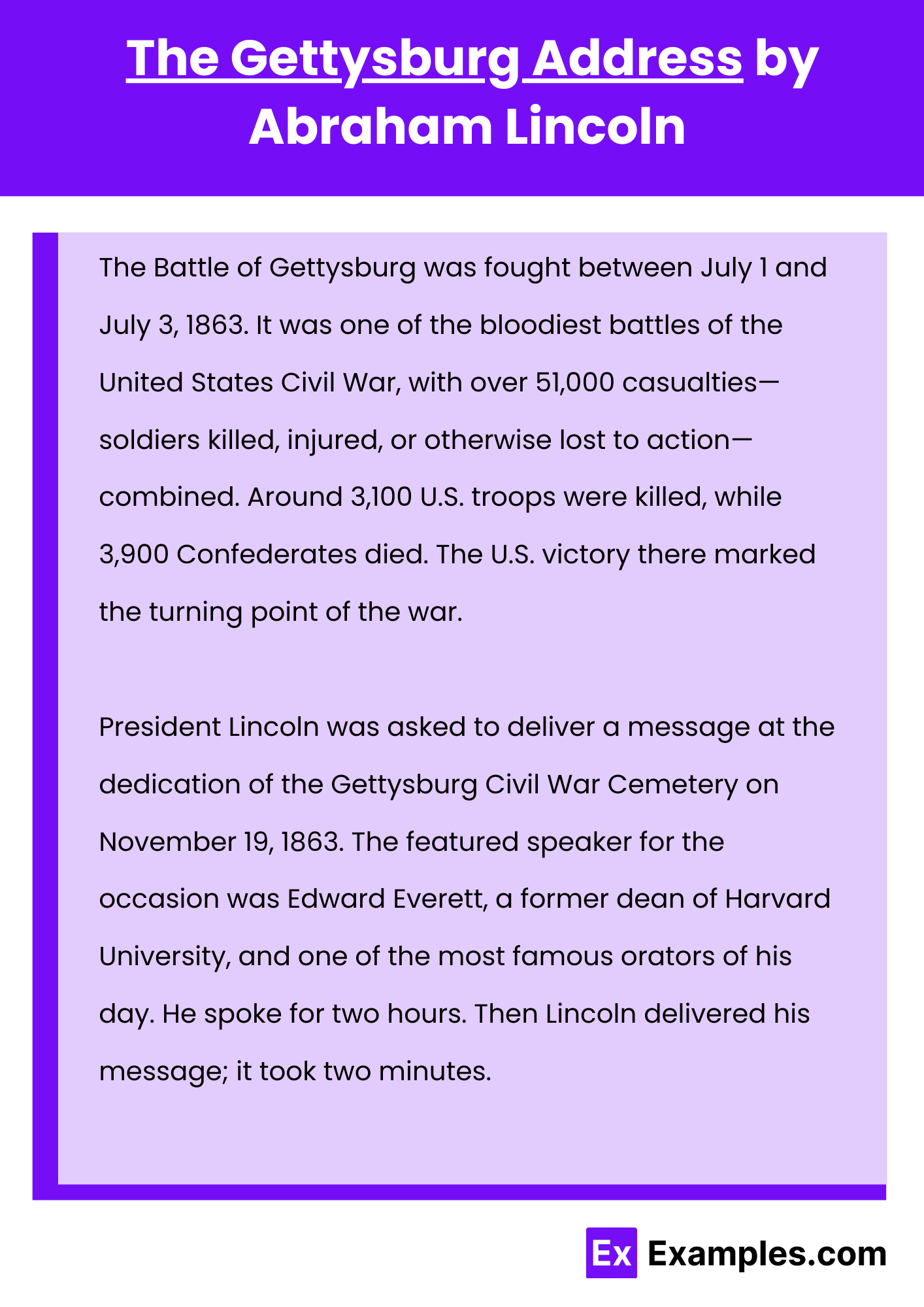The Gettysburg Address by Abraham Lincoln
Download The Gettysburg Address by Abraham Lincoln in PDF
The Gettysburg Address by Abraham Lincoln (Text-Version)
The Battle of Gettysburg was fought between July 1 and July 3, 1863. It was one of the bloodiest battles of the United States Civil War, with over 51,000 casualties—soldiers killed, injured, or otherwise lost to action—combined. Around 3,100 U.S. troops were killed, while 3,900 Confederates died. The U.S. victory there marked the turning point of the war.
President Lincoln was asked to deliver a message at the dedication of the Gettysburg Civil War Cemetery on November 19, 1863. The featured speaker for the occasion was Edward Everett, a former dean of Harvard University, and one of the most famous orators of his day. He spoke for two hours. Then Lincoln delivered his message; it took two minutes.
Lincoln tied the current struggle to the days of the signing of the Declaration of Independence, speaking of the principles that the nation was conceived in: liberty and the proposition that all men are created equal. Moreover, he tied both to the abolition of slavery—a new birth of freedom—and the maintenance of representative government.
Despite (or perhaps because of) its brevity, since the speech was delivered, it has come to be recognized as one of the most powerful statements in the English language and, in fact, one of the most important expressions of freedom and liberty in any language. Indeed, Everett immediately afterward wrote to Lincoln that “I wish that I could flatter myself that I had come as near to the central idea of the occasion in two hours as you did in two minutes.”
“Fourscore and seven years ago our fathers brought forth, on this continent, a new nation, conceived in liberty, and dedicated to the proposition that all men are created equal. Now we are engaged in a great civil war, testing whether that nation, or any nation so conceived, and so dedicated, can long endure. We are met on a great battle-field of that war. We have come to dedicate a portion of that field, as a final resting-place for those who here gave their lives, that that nation might live.
It is altogether fitting and proper that we should do this.
But, in a larger sense, we cannot dedicate, we cannot consecrate—we cannot hallow—this ground. The brave men, living and dead, who struggled here, have consecrated it far above our poor power to add or detract.
The world will little note, nor long remember what we say here, but it can never forget what they did here.
It is for us the living, rather, to be dedicated here to the unfinished work which they who fought here have thus far so nobly advanced. It is rather for us to be here dedicated to the great task remaining before us—that from these honored dead we take increased devotion to that cause for which they here gave the last full measure of devotion—that we here highly resolve that these dead shall not have died in vain—that this nation, under God, shall have a new birth of freedom, and that government of the people, by the people, for the people, shall not perish from the earth.”



